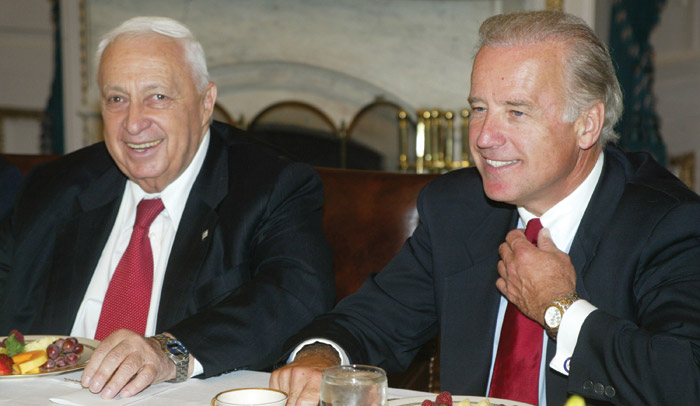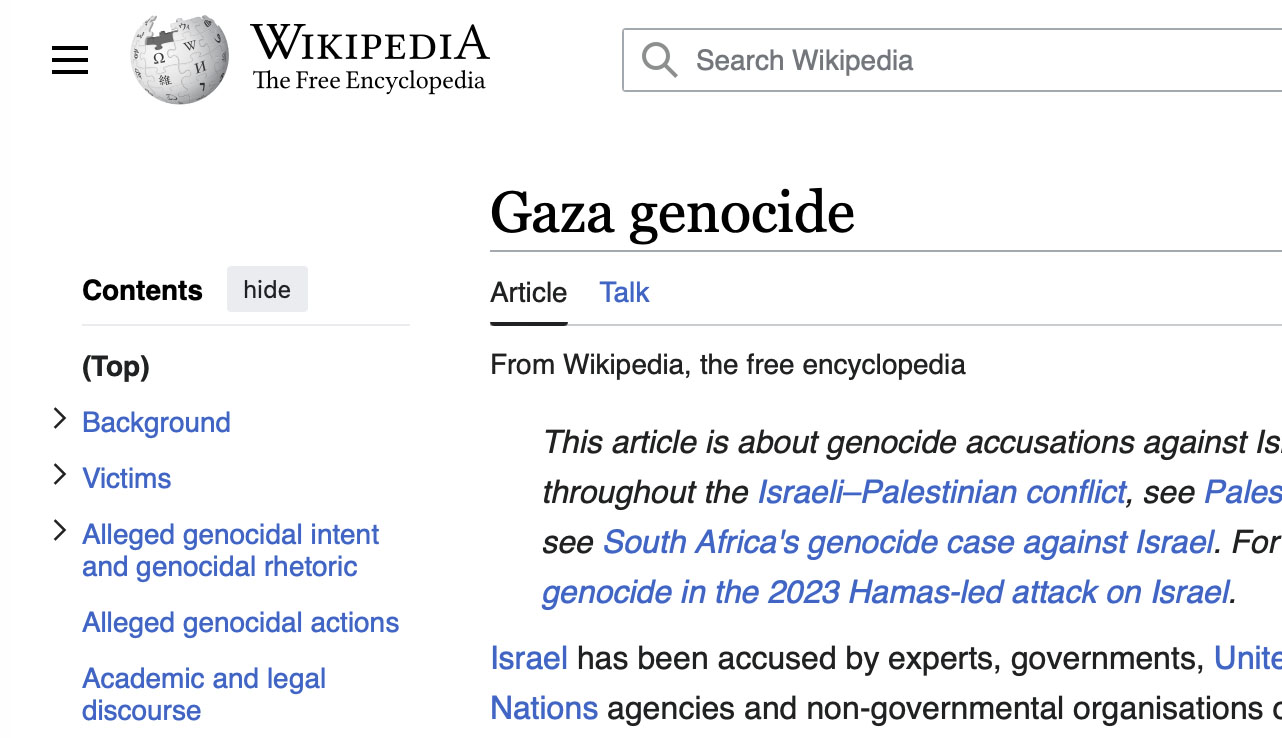
What’s the Next Step?
The main body of a letter about steps after the targeted killing of Qassem Soleimani in the Jan. 17 issue does an impressive job laying out a summary of many of the greatest dangers of Iran (“The Death of Qassem Soleimani”). It is a frightening picture, all the scarier for its realism and its inevitable danger and/or suffering no matter how we deal with it.
Therefore, the conclusion that “there is only one reasonable plan of action” was stupefying. I disagree vehemently, not even knowing for sure what plan of action the letter writer espouses. Depending on one’s definition of reasonable, I estimate that there are essentially infinite reasonable plans of action here … or none at all. The point is, it’s an ugly mess. I suppose I shouldn’t be too surprised, then, at the emotional need to simplify, to say Iran is horrible and we must therefore … I guess, hit them hard?
Maybe we should. Maybe all-out war actually is the answer. If so, how that war is carried out is anything but a simple “one” plan of action. And if we need more subtle diplomacy, economic sanctions, etc., there is no simplicity there, either. The left and the right vociferously argued over the nuclear deal, typically on a partisan basis, acting like one side was sure the other side was insane, when in fact there are complexities we don’t understand and classified information we don’t even know.
It will take more than one approach to deal with one of the most dangerous issues on the planet. We’d best lay down our certainty, scary as that is, and listen to every idea we can.
Michael Feldman, Los Angeles
When Flynn Failed
Attempting to crush United Nations Security Council Resolution 2334 is one of the things Michael Flynn lied about to the FBI. No wonder the media isn’t mentioning Resolution 2334 (which concerned Israeli settlements in “Palestinian territories occupied since 1967, including East Jerusalem.”) All hell broke loose when President Barack Obama had the U.N. on autopilot and Resolution 2334 was adopted, 14-0, on Dec. 23, 2016.
Harvard Law professor Alan Dershowitz said, “President Obama’s decision on the way out (as he was leaving office) to allow the United Nations to condemn Israel for occupying the Western Wall, the holiest place in Judaism, the Jewish Quarter, Hebrew University, the Hadassah Hospital bypass road, was abominable.”
Then Israeli Prime Minister Benjamin Netanyahu decided not to return Israel’s ambassadors to Wellington, New Zealand, and Dakar, Senegal, who were recalled after Resolution 2334 passed in 2016, according to a senior source familiar with the issue. Until the resolution passed, Israel had resident ambassadors in both countries. Netanyahu’s decision not to send the envoys back to Senegal and New Zealand wasn’t a formal demoting of ties, but with only a charge d’affaires remaining in these capitals from now on, and no resident ambassador. Netanyahu and former Ukrainian President Petro Poroshenko also canceled the visit of Ukrainian Prime Minister Volodymyr Groysman to Israel in a unceremonious manner because of Ukrainian support for the successful U.N. resolution.
Netanyahu met with then British Prime Minister Theresa May at 10 Downing Street. Britain also voted in favor of Resolution 2334, but May stated all would be well for the 100th anniversary of the Balfour Declaration in 2017.
London held parties at Parliament for the 100th anniversary while Netanyahu visited. (The Balfour Declaration was not debated in either chamber of Parliament and never was approved by the British legislature in 1917.)
Matt McLaughlin, via email
Auschwitz vs. Israel
Poland has turned Auschwitz into a Disneyland experience to suck money from Jewish pockets. Those Jewish visitors would be better off going to Israel and seeing how a vibrant and resurgent Jewish community is instilling pride in being a Jew.
Let the Christians visit the death camps to remind themselves how willing they were to murder their Jewish neighbors. Read Anne Frank’s diary, watch “Schindler’s List” and “Fiddler on the Roof.” Don’t sanitize history or negate the heinous massacre.
Harvey Traison, via email
‘Uncut Gems’ Shines
I would like to thank the Journal for publishing an introspective story about the film “Uncut Gems,” starring Adam Sandler (“Can a Bad Jew on the Big Screen Be Good for the Jews?” Jan. 17).
Had it not been for the story, I probably wouldn’t have gone to see the movie. It is a very raw and in-your-face look at an American Jewish family. I found the character portrayals to be heartfelt. The movie is entertaining and a real cliffhanger up until the very last scene.
Melanie Alkov, Los Angeles
A Changing World
The Washington Examiner ran a story saying there was an almost 1,000% increase in gun permit applications in Monsey, N.Y., after the Dec. 28 machete attack at the rabbi’s house on Hanukkah. Finally, some personal, collective responsibility for the security of one and all. Police cannot be everywhere, all the time, so we should “be prepared” (the Boy Scout motto.)
And on the subject of personal freedom, from Iranian reporter Masih Alinejad: “Iranians now chant slogans against #Soleimani and #Khamenei: “Soleimani is a killer. So is Khamanei (supreme leader).’” Students are not anti-American — they have refused to step on the flags of the U.S. and Israel. The pro-Soleimani protests were orchestrated. The downtrodden people are now chanting “Death to Islamic Republic dictatorship.” And, “The regime told us our enemy is the U.S. but, actually, our enemy is right here,” referring to the regime itself.
To disperse the crowds in Tehran and other cities, police have used tear gas and live ammunition. More dead and wounded. Such courage fighting for their freedom.
Good luck to them.
Enriqué Gascon, Westside Village
Story Skirts Moral Issue About Torture
The analysis story by Rabbi Joshua Levine Grater, “ ‘The Report’ Is the Closest Thing We Have to Seeing the Truth About Torture” (Jan. 17) fails to confront the difficult moral issues surrounding torture. In repeating the mantra, “[t]his tactic has proven to be ineffective in gaining the truth …” the rabbi eliminates the moral dilemma. Unless we are to assume the CIA is a band of jolly sadists, torturing humans in one room while torturing dogs and cats in the next, it is fair to assume that torture and the promise of its cessation can force the disclosure of critical information. Indeed, it has been disclosed that this was the case with certain high-profile terrorist leaders who were captured. And so, the real moral question is: Assuming torture can be effective in gaining the truth, is it ever morally justified? That is a very different question than the one addressed in Grater’s analysis — particularly if many innocent lives hang in the balance. It is a hard question.
Michael Lackner, Los Angeles
Now it’s your turn. Letters should be no more than 200 words and must include a valid name and city. The Journal reserves the right to edit all letters.
letters@jewishjournal.com.






















 More news and opinions than at a Shabbat dinner, right in your inbox.
More news and opinions than at a Shabbat dinner, right in your inbox.